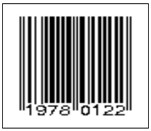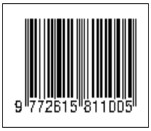STUDENTS’ PERSPECTIVE ON ROLE-PLAY AND PREVIEW /REVIEW TEACHING METHODS IN LEARNING VOCABULARY: A COMPARATIVE STUDY
Abstract
Keywords
Full Text:
PDFReferences
Alabsi, T. A. (2016). The effectiveness of role play strategy in teaching vocabulary. Theory and practice in language studies, 6(2), 227.
Alqahtani, M. (2015). The importance of vocabulary in language learning and how to be taught. International journal of teaching and education, 3(3), 21-34.Do-Jin, K.I.M., Jong-Hyuck, K.I.M., Wi-Young, S.O. and Eun-Ju, C.H.O.I., 2017. The effects of a psychomotor training program on physical coordination in children with development delay. Iranian journal of public health, 46(6), p.860.
Altun, M. (2015). Using role-play activities to develop speaking skills: A case study in the language classroom. International Journal of Social Sciences & Educational Studies, 1(4), 27-33.
Do-Jin, K. I. M., Jong-Hyuck, K. I. M., Wi-Young, S. O., & Eun-Ju, C. H. O. I. (2017). The effects of a psychomotor training program on physical coordination in children with development delay. Iranian journal of public health, 46(6), 860.
Ferlazzo, L., & Sypnieski, K. H. (2018). Teaching English Language Learners: Tips from the Classroom. American Educator, 42(3), 12.
Green, H., & Pekel, H. (2013). Preview/Review Strategy. Retrieved January 14, 2023, from prezi: https://prezi.com/pwcmearfnr8b/previewreview-strategy/
Kuipers, J. C., & Clemens, D. L. (1998). Do I dare? Using role-play as a teaching strategy. Journal of psychosocial nursing and mental health services, 36(7), 12-17.
Huang, I. Y., & Shan, J. (2008). Role play for ESL/EFL children in the English classroom. The internet TESL journal, 14(2), 1-10.
Holt, L. C., & Kysilka, M. L. (2006). Instructional patterns: Strategies for maximizing student learning. Sage.
Ladousse, G. P. (1987). Role play (Vol. 3). Oxford University Press.
Nagy, W., Scott, J., & Kamil, M. L. (2000). Vocabulary processes. Handbook of reading research, 3.
Nation, I. S. P. (2001). Learning vocabulary in another language (Vol. 10). Cambridge: Cambridge university press.
Rahimy, R. (2012). The effect of using Role-play on Iranian EFL learners' speaking skill. Retrieved December 29t1i, 2014.
Rashid, M. H., Lan, Y., & Hui, W. (2022, September). The importance of vocabulary in teaching and learning in applied linguistics. In ICSSIET CONGRESS 3st International Congress on Social Sciences, Innovation and Educational Technologies PROCEEDINGS BOOK (p. 129). GLOBAL ACADEMY YAYINCILIK VE DANIŞMANLIK HİZMETLERİ SANAYİ TİCARET LİMİTED ŞİRKETİ.
Richards, J. C., & Renandya, W. A. (Eds.). (2002). Methodology in language teaching: An anthology of current practice. Cambridge university press.
Rusman, A., Asriati, ST., Maharida. (2020). THE USE OF ROLE PLAY METHOD TO IMPROVE STUDENTS’VOCABULARY AT JUNIOR HIGH SCHOOL. Jurnal Keguruan Dan Ilmu Pendidikan (JKIP), 7(1), 20-35.
Schmitt, N. (2008). Instructed second language vocabulary learning. Language teaching research, 12(3), 329-363.
Schmitt, N., & Schmitt, D. (2020). Vocabulary in language teaching. Cambridge university press.
Sugiyono. (2013). Metode Penelitian Pendidikan. Bandung: Alfabeta.
Sugiyono. (2017). Metode Penelitian Kuantitatif, Kualitatif dan R&D. Bandung: Alfabeta.
Taka, V. P. (2008). Vocabulary learning strategies and foreign language acquisition. In Vocabulary Learning Strategies and Foreign Language Acquisition. Multilingual Matters.
Tozcu, A., & Coady, J. (2004). Successful learning of frequent vocabulary through CALL also benefits reading comprehension and speed. Computer assisted language learning, 17(5), 473-495.
Webb, S. (2005). Receptive and productive vocabulary learning: The effects of reading and writing on word knowledge. Studies in second language acquisition, 27(1), 33-52.
Webb, S. (2009). The effects of receptive and productive learning of word pairs on vocabulary knowledge. RELC journal, 40(3), 360-376.
Yavaşlar, E., & Demirci, C. (2018). Vocabulary role play: an active learning strategy for vocabulary teaching. European Journal of Education Studies.
DOI: https://doi.org/10.35327/gara.v17i4.685
Refbacks
- There are currently no refbacks.
Copyright (c) 2023 GANEC SWARA

This work is licensed under a Creative Commons Attribution-ShareAlike 4.0 International License.










